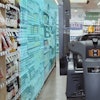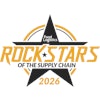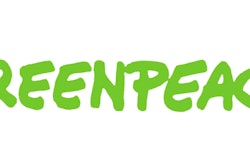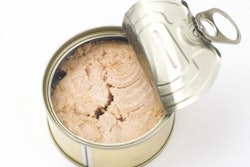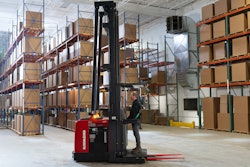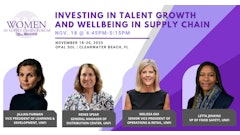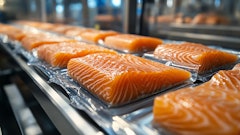In its eighth version of the Carting Away the Oceans report, Greenpeace says the good news is that more grocery stores than ever are developing more robust sustainable seafood policies, engaging in proactive sustainable seafood initiatives, and offering more sustainable seafood options to consumers.
In evaluating the performance of 26 major retailers, Greenpeace found that seafood teams in the top performing supermarkets have long since begun leading the way towards a solution instead of simply ignoring the problem. While the same cannot be said for all of the companies profiled in this report, as a whole, there is progress, Greenpeace noted.
The most significant trends and findings from this report are:
• Wegmans has become the fourth grocery store to earn the “good” rating since Greenpeace began its industry rankings in 2008.
• Newly-profiled Hy-Vee has entered the rankings in fifth place, an impressive performance for a first-time assessment.
• Of the top five performing supermarkets on sustainable seafood, four have launched or will shortly launch private label sustainable canned tuna products (pole-and-line or FAD-free). Consumers can now find sustainable and affordable tuna at Whole Foods, Safeway, Trader Joe’s, Hy-Vee, and Walmart.
• Kroger continues to sell the largest number of Red List species (which should not be sold due to environmental reasons)—setting a poor example for the industry.
• Recent and upcoming industry buyouts could radically shake-up retailers’ sustainability performance:
Grocery giant Kroger (ranked 21st) acquired Harris Teeter (ranked 6th) in late January 2014, which could be a loss for our oceans if Kroger replaces Harris Teeter’s seafood sourcing policy with its own. (In this report, Harris Teeter is profiled as a standalone store given its independent status for most of the preceding 12-month period.)
SUPERVALU sold off a large quantity of its banners, including Albertson’s, which is now a sizeable entity in its own right (both are profiled separately in this report).
The recent Safeway/Albertsons merger could spell problems for the oceans if 20th ranked Albertsons’ seafood policies and practices were to apply to 2nd ranked Safeway.
• Ahold USA and Hy-Vee have joined the growing chorus of retailers calling for protection of part of the Bering Sea Canyons in Alaska — key fisheries with futures threatened by industrial fishing.
• Five new grocers are profiled in this year’s report: Wakefern (ShopRite & PriceRite), Hy-Vee, WinCo, Save Mart, and Roundy’s. Consumers that shop at these stores will for the first time see how well they perform in the arena of sustainable seafood.
Despite progress made by the retail sector overall, our oceans continue to suffer from overfishing, destructive fishing, and illegal fishing. Populations of the ocean’s top predators like sharks, tuna, and swordfish have dropped by as much as 90 percent over the past half-century. Bycatch—where unintended victims like sharks and turtles are caught in the process of fishing, then thrown back into the sea dead or dying—remains a scandalous problem. Wastefully tossing such large amounts of fresh seafood overboard threatens marine ecosystems as well as global food security. Finally, vessels continue to fish illegally in developing countries’ poorly patrolled
waters, stealing their resources, livelihoods and traditional sources of food. To worsen matters, shocking human rights violations are often interlinked with this kind of illegal fishing as well. In short, there is still a long way to go to improve the sustainability of seafood sold in the U.S. and around the world.
Transparency is a critical part of measuring and improving sustainability. Greenpeace thanks the retailers that have participated in the survey process and openly shared relevant information about internal sourcing.
Finally, while this report focuses on large-scale chain supermarkets, Greenpeace recognizes and applauds the pioneering role that small chains, independent shops, and local co-ops serve in providing some of the most sustainable seafood available to their local communities.
For more information, visit http://www.greenpeace.org/usa/Global/usa/planet3/PDFs/oceans/Carting-Away-the-Oceans-VIII.pdf.

